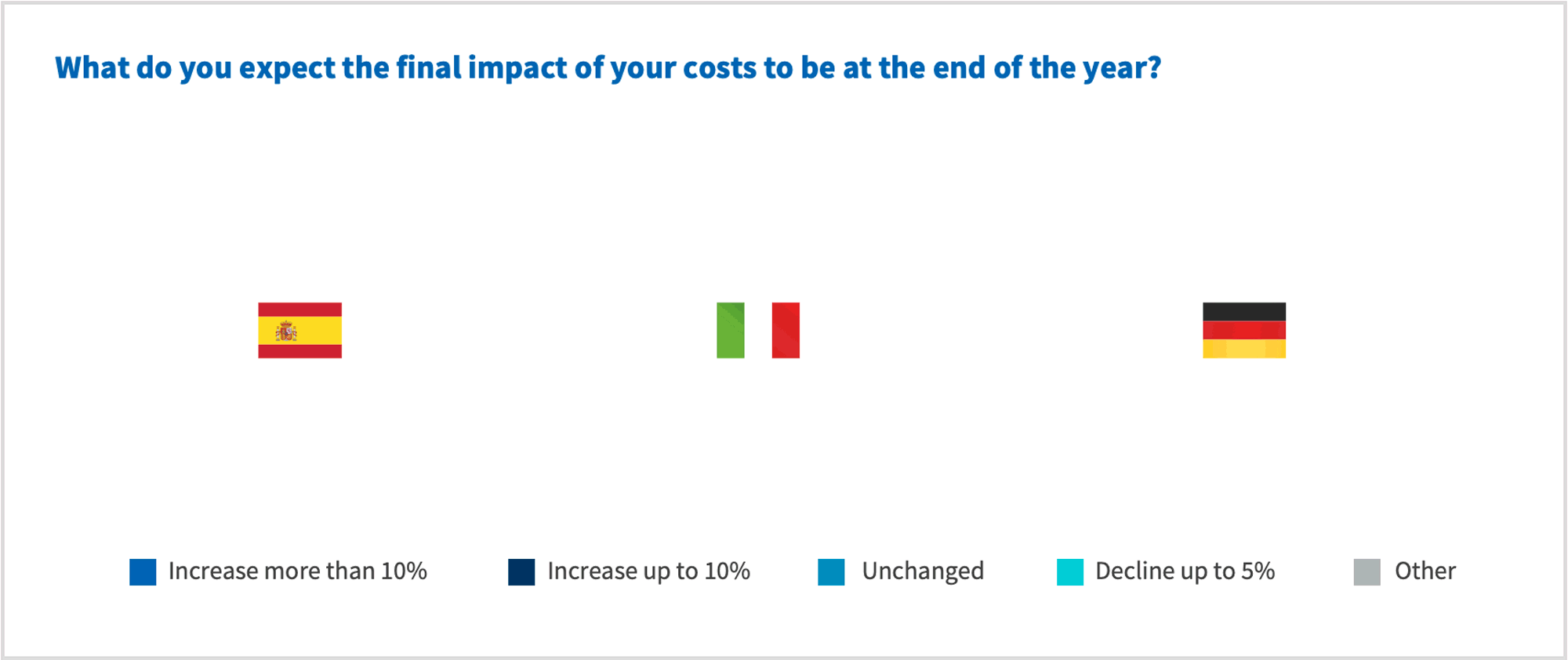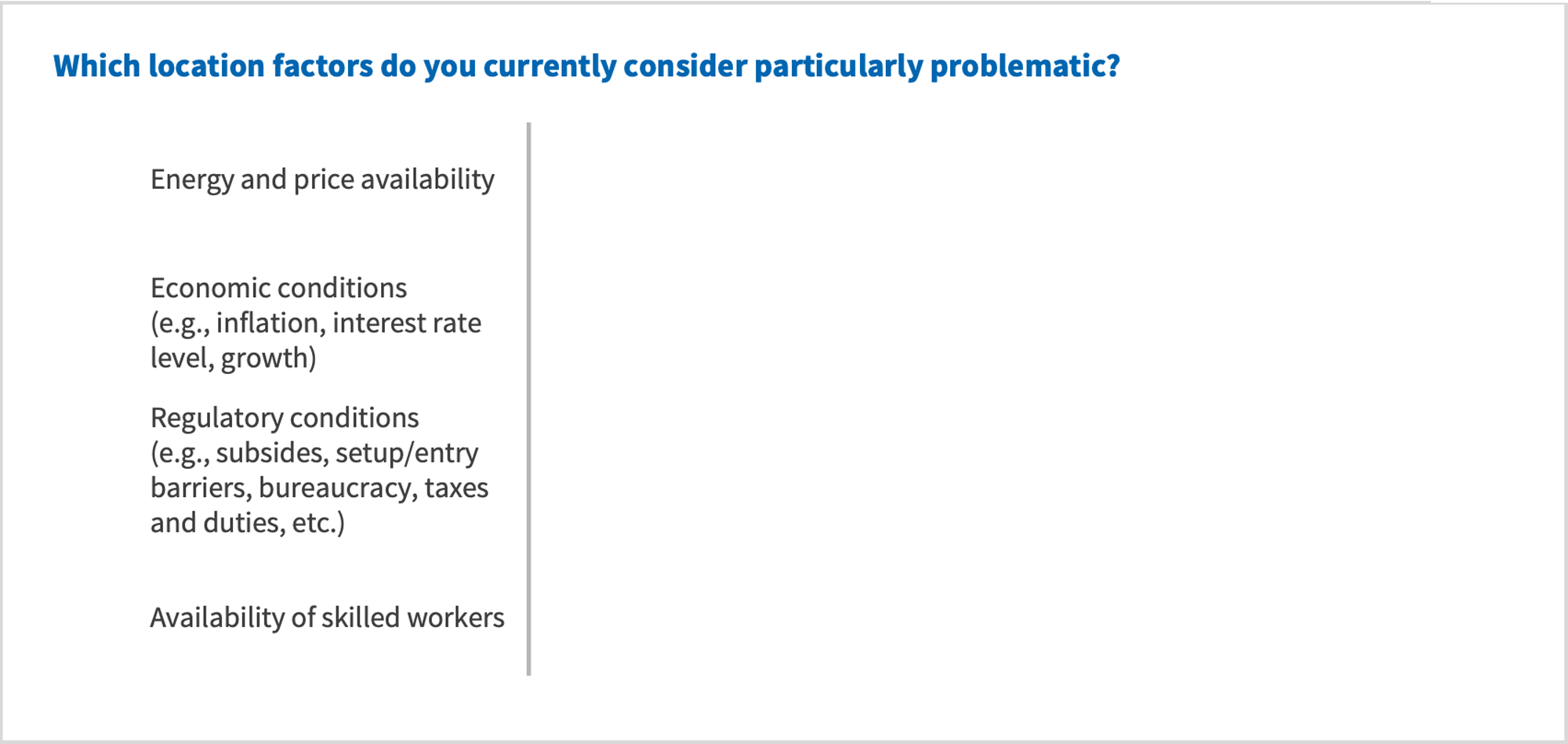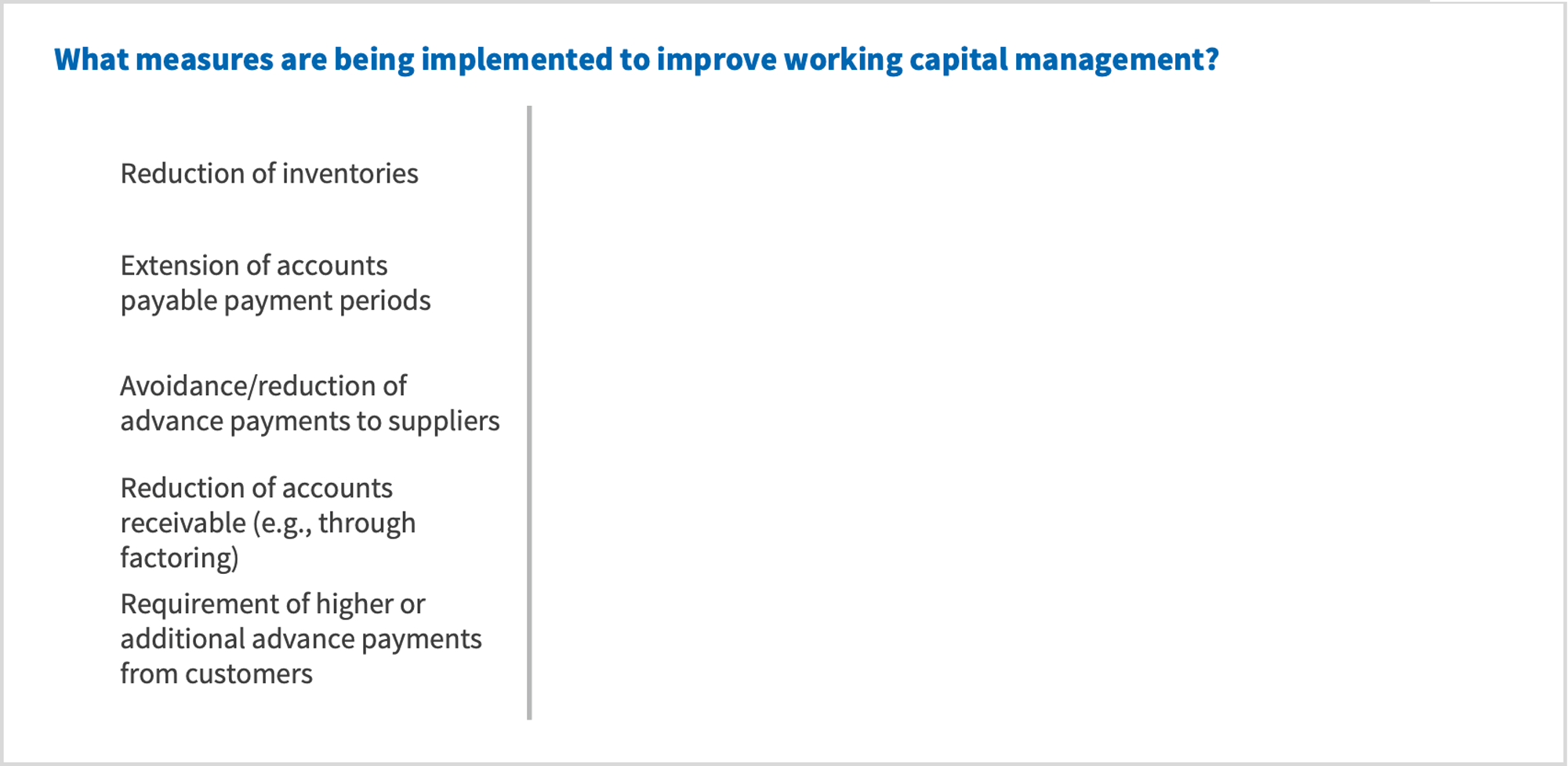Supply Chain Barometer 2023: Cost Pressures Continue
-
November 24, 2023
DownloadsDownload Report
-
Global supply chains have transformed significantly in recent years, primarily driven by unexpected disruptions, such as the COVID-19 pandemic and geopolitical conflicts, that have resulted in global materials shortages and increased inflationary pressures.
To identify current trends and better understand how firms are navigating these supply chain challenges, FTI Consulting surveyed C-level executives, general managers, and functional leaders at more than 450 companies in sectors including industrial, automotive, and consumer goods across the European business landscape.

However, these external factors are only part of the picture. Changes in consumer demand patterns have meant that broader choice and faster availability are now required, which is creating further supply chain complexity. For some firms, the adoption of omnichannel strategies is leading to further challenges, as companies often need to cope with an increasing number of stock keeping units while at the same time clients are expecting faster deliveries. These disruptions have had a profound impact on industries that heavily rely on lengthy supply chains for materials and components, or that have multinational production.
Overall Highlights from the Barometer:
European business leaders have identified the significant supply chain challenges they are facing in their respective industries, which are centred around five critical themes. Below, we share some of these key findings.
Increasing Cost-Related Pressures:
Inflationary pressures are having a huge impact on organisations’ supply chains, which in turn is eroding their business margins, with 78% of respondents acknowledging a significant impact and 20% reporting cost increases exceeding 10% compared to the previous year. This surge in costs is most pronounced in energy prices, materials, wages, and logistics services. While some of these cost increases can be attributed to contextual factors such as geopolitical conflicts and economic cycles, there is a deeper impact associated with changes and evolution of customers’ demand, underscoring the importance of developing strategic cost optimisation programmes to enable companies to thrive in a changing economy.
Materials and Skilled Workforce Shortages:
47% of companies cited skilled workforce shortages as the second most important issue (after cost inflation). This concern is particularly prominent in northern Europe, with more than 77% of respondents in Germany citing the unavailability of qualified labour as a significant issue.
Rethinking Supply Chain Networks:
A trend gaining traction among leaders is the re-evaluation of supply chain networks to build resilience and adapt to external conditions. Significantly, 87% of respondents think that tactical modification of their supply chains is necessary in areas such as purchasing, logistics, and production. As they seek to obtain an optimal mix of suppliers, firms are maintaining their current supplier relationships but are favouring regional providers over global sources as they develop and expand their regional production facilities.

Working Capital Management Challenges:
A staggering 90% of respondents of companies think that they need to improve their working capital management in the context of rising interest rates, and companies are implementing measures such as renegotiating payment terms with suppliers and clients, reducing inventory levels, and deferring or halting investment projects.
The Growing Imperative to Invest in ESG Innovations and Digitisation:
Companies continue to dedicate significant resources to ESG advancements and digitisation. This commitment is particularly noteworthy because although only 19% of surveyed companies have a legal industry requirement with regard to decarbonisation, more than 92% of respondents believe that ESG efforts give them a competitive advantage and are actively investing in tracking and reducing carbon emissions.
Conclusion
The insights gleaned from FTI Consulting’s Supply Chain Barometer 2023 demonstrate that business leaders are making concerted efforts to minimise supply chain challenges. However, in many cases, achieving success in this rapidly evolving landscape requires an end-to-end supply chain transformation with a well-defined strategy and effective execution that can address prevalent challenges, including inflationary pressures, supply shortages, geopolitical complexities, and highly competitive regional markets.
Businesses must take proactive measures to address supply chain challenges and capitalise on opportunities that lie ahead:
- Managed Cost
- Enhance Resilience
- Develop a Regional Focus
- Working Capital is very relevant
- Leverage ESG, the “new” digitalisation
Published
November 24, 2023
 Key Contacts
Key Contacts
Senior Managing Director
Managing Director
Senior Managing Director
Downloads
Most Popular Insights
- Beyond Cost Metrics: Recognizing the True Value of Nuclear Energy
- Finally, Pundits Are Talking About Rising Consumer Loan Delinquencies
- A New Era of Medicaid Reform
- Turning Vision and Strategy Into Action: The Role of Operating Model Design
- The Hidden Risk for Data Centers That No One is Talking About




